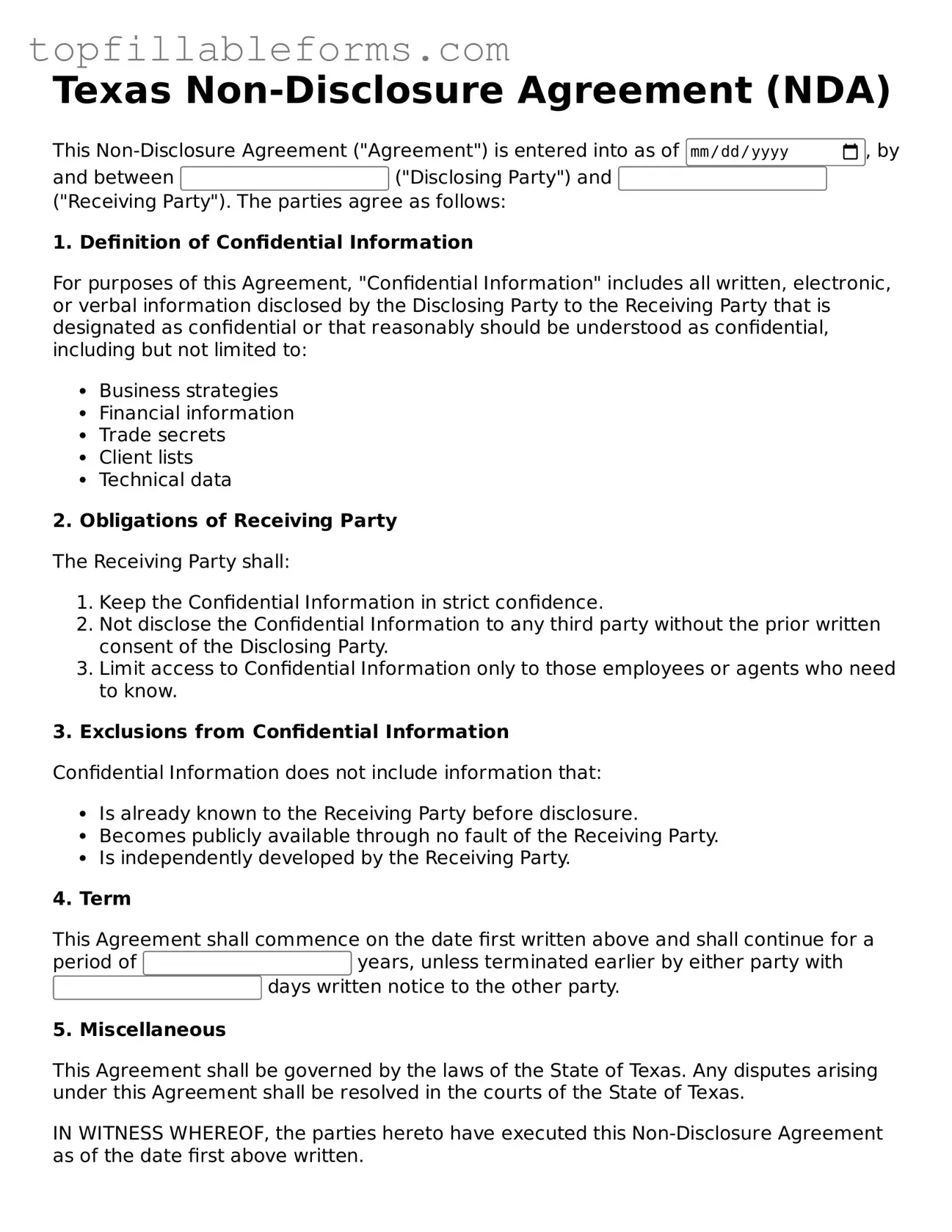Attorney-Verified Non-disclosure Agreement Template for Texas
A Texas Non-disclosure Agreement (NDA) is a legal contract designed to protect confidential information shared between parties. This form ensures that sensitive information remains private and is not disclosed to unauthorized individuals. By signing an NDA, both parties agree to maintain confidentiality, fostering trust and security in business relationships.
Open Non-disclosure Agreement Editor Here

Attorney-Verified Non-disclosure Agreement Template for Texas
Open Non-disclosure Agreement Editor Here
Finish the form now and be done
Finish your Non-disclosure Agreement online by editing, saving, and downloading fast.
Open Non-disclosure Agreement Editor Here
or
▼ PDF File
